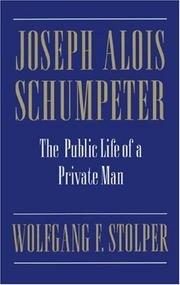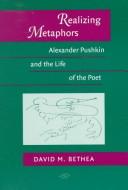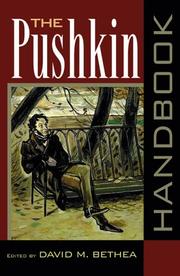| Listing 1 - 7 of 7 |
Sort by
|

ISBN: 0691067732 1306984815 0691605580 1400863740 0691634521 9781400863747 9780691067735 9780691605586 Year: 2014 Publisher: Princeton, NJ
Abstract | Keywords | Export | Availability | Bookmark
 Loading...
Loading...Choose an application
- Reference Manager
- EndNote
- RefWorks (Direct export to RefWorks)
Joseph Brodsky, one of the most prominent contemporary American poets, is also among the finest living poets in the Russian language. Nevertheless, his poetry and the crucial bilingual dimension of his poetic world are still insufficiently understood by Western audiences. How did the Russian-born Brodsky arrive at his present status as an international man of letters and American poet laureate? Has he been created by his bilingual experience, or has he fashioned the bilingual self as a necessary precondition for writing poetry in the first place? Here David Bethea suggests that the key to Brodsky, perhaps the last of the great Russian poets in the "bardic" mode, is in his relation to others, or the Other.Brodsky's master trope turns out to be "triangular vision," the tendency to mediate a prior model (Dante) with a closer model (Mandelstam) in the creation of a palimpsest-like text in which the poet is implicated as a triangulated hybrid of these earlier incarnations. In pursuing this theme, Bethea compares and contrasts Brodsky to the poet's favorite models--Donne, Auden, Mandelstam, and Tsvetaeva--and analyzes his fundamental differences with Nabokov, the only Russian exile of Brodsky's stature to rival him as a bilingual phenomenon. Various critical paradigms are used throughout the study as foils to Brodsky's thinking.Originally published in 1994.The Princeton Legacy Library uses the latest print-on-demand technology to again make available previously out-of-print books from the distinguished backlist of Princeton University Press. These editions preserve the original texts of these important books while presenting them in durable paperback and hardcover editions. The goal of the Princeton Legacy Library is to vastly increase access to the rich scholarly heritage found in the thousands of books published by Princeton University Press since its founding in 1905.
Languages & Literatures --- Slavic, Baltic and Albanian Languages & Literatures --- Brodsky, Joseph, --- Criticism and interpretation. --- Бродский, Иосиф, --- Brodskiĭ, Iosif, --- Brodskij, Jossif, --- Brodsky, Yosif, --- Brontski, Iōsēph, --- Brodsky, Iosif, --- Brodski, Josif, --- Brodskij, Josif, --- Brodskij, Iosif, --- ברודסקי, יוסף, --- LITERARY CRITICISM / American / General. --- Brodsky, Joseph
Book
ISBN: 0691067465 1306986540 0691605459 0691634424 0691015104 1400859654 9781306986540 9781400859658 Year: 2014 Publisher: Princeton, NJ
Abstract | Keywords | Export | Availability | Bookmark
 Loading...
Loading...Choose an application
- Reference Manager
- EndNote
- RefWorks (Direct export to RefWorks)
David Bethea examines the distinctly Russian view of the "end" of history in five major works of modern Russian fiction.Originally published in 1989.The Princeton Legacy Library uses the latest print-on-demand technology to again make available previously out-of-print books from the distinguished backlist of Princeton University Press. These editions preserve the original texts of these important books while presenting them in durable paperback and hardcover editions. The goal of the Princeton Legacy Library is to vastly increase access to the rich scholarly heritage found in the thousands of books published by Princeton University Press since its founding in 1905.
Russian fiction --- End of the world in literature. --- Apocalyptic literature --- History and criticism.

ISBN: 0585147620 9780585147628 9780299159733 0299159736 0299159701 0299159744 9780299159702 9780299159740 Year: 1998 Publisher: Madison University of Wisconsin Press
Abstract | Keywords | Export | Availability | Bookmark
 Loading...
Loading...Choose an application
- Reference Manager
- EndNote
- RefWorks (Direct export to RefWorks)
Poets, Russian --- Metaphor. --- Parabole --- Figures of speech --- Reification --- Pushkin, Aleksandr Sergeevich, --- Derzhavin, Gavriil Romanovich, --- Державин, Гавриил Романович, --- Державин, Г. Р. --- Derzhavin, G. R. --- Derjavine, Gavril Romanovitch, --- Deržavin, Gavrila Romanovič, --- Пушкин, Александр Сергеевич, --- Poesjkin, Alexander, --- Puszkin, Aleksander, --- Puschkin, Alexander, --- Pouchkine, Alexandre, --- Poushkin, Alexander, --- Puškin, Alexandr Sergějevič, --- Пушкін, Олександр Сергійович, --- Pushkin, Oleksandr Serhiĭovych, --- Пушкин, А. С. --- Pushkin, A. S. --- Pushkin, Alexander, --- Pʻu-hsi-chin, --- Pushkin, A. --- Пускин, Александр, --- Puskin, Aleksandr, --- Pooshkeen, Alexander, --- Pushḳin, Aleksander S. --- Puškin, Alexander Sergeevich, --- Puškin, Aleksandar S., --- Puškini, Alekʻsandre, --- Puskin, Alé̂chxanđrơ, --- Puskin, Alegsandar, --- Pushkin, Alejandro Sergueevich, --- Puchkin, Alejandro Serguievich, --- Puschkin, A. S. --- Puṣkin̲, Aleksāṇṭar, --- Pushkin, Alexandr, --- פושקין --- פושקין, אלכסנדר סרגיביץ׳, --- פושקין, אלכסנדר סרגייביץ --- פושקין, אלכסנדר סרגייביץ׳, 1799־1837 --- פושקין, אלקסנדר סרגיביץ, --- פושקין, א. --- פושקין, א. ס, --- פושקין, א. ס. --- פושקין, ס. --- 普希金, A. S., --- Pușkin, A. S., --- Influence. --- Puškin, Aleksandr Sergeevič --- Poesjkin, A. S. --- Poesjkin, Alexander --- Pouchkine, Alexandre --- Puschkin, Alexander --- Puschkin, Alexander Sergejewitsch --- Pushkin, Alexander --- Pusjkin, Aleksandr Sergejevitsj --- Puškin, A. S. --- Pushkin, Aleksandr Sergeevich --- Biography

ISBN: 0299195635 9780299195632 0299195600 9780299195601 130626927X Year: 2005 Publisher: Madison University of Wisconsin press
Abstract | Keywords | Export | Availability | Bookmark
 Loading...
Loading...Choose an application
- Reference Manager
- EndNote
- RefWorks (Direct export to RefWorks)
Pushkin, Aleksandr Sergeevich, --- Пушкин, Александр Сергеевич, --- Poesjkin, Alexander, --- Puszkin, Aleksander, --- Puschkin, Alexander, --- Pouchkine, Alexandre, --- Poushkin, Alexander, --- Puškin, Alexandr Sergějevič, --- Пушкін, Олександр Сергійович, --- Pushkin, Oleksandr Serhiĭovych, --- Пушкин, А. С. --- Pushkin, A. S. --- Pushkin, Alexander, --- Pʻu-hsi-chin, --- Pushkin, A. --- Пускин, Александр, --- Puskin, Aleksandr, --- Pooshkeen, Alexander, --- Pushḳin, Aleksander S. --- Puškin, Alexander Sergeevich, --- Puškin, Aleksandar S., --- Puškini, Alekʻsandre, --- Puskin, Alé̂chxanđrơ, --- Puskin, Alegsandar, --- Pushkin, Alejandro Sergueevich, --- Puchkin, Alejandro Serguievich, --- Puschkin, A. S. --- Puṣkin̲, Aleksāṇṭar, --- Pushkin, Alexandr, --- פושקין --- פושקין, אלכסנדר סרגיביץ׳, --- פושקין, אלכסנדר סרגייביץ --- פושקין, אלכסנדר סרגייביץ׳, 1799־1837 --- פושקין, אלקסנדר סרגיביץ, --- פושקין, א. --- פושקין, א. ס, --- פושקין, א. ס. --- פושקין, ס. --- 普希金, A. S., --- Pușkin, A. S., --- Criticism and interpretation. --- Puškin, Aleksandr Sergeevič --- Poesjkin, A. S. --- Poesjkin, Alexander --- Pouchkine, Alexandre --- Puschkin, Alexander --- Puschkin, Alexander Sergejewitsch --- Pushkin, Alexander --- Pusjkin, Aleksandr Sergejevitsj --- Puškin, A. S. --- Pushkin, Aleksandr Sergeevich
Book
ISBN: 0691610592 1400853303 9780691610597 9781400853304 0691065594 9780691065595 Year: 1983 Publisher: Princeton, N.J. Princeton University Press
Abstract | Keywords | Export | Availability | Bookmark
 Loading...
Loading...Choose an application
- Reference Manager
- EndNote
- RefWorks (Direct export to RefWorks)
This critical biography of Vladislav Khodasevich (1886-1939), David M. Bethea introduces to the Western reader the life and art of a literary figure described by Vladimir Nabokov as the greatest Russian poet of the twentieth century.Originally published in 1983.The Princeton Legacy Library uses the latest print-on-demand technology to again make available previously out-of-print books from the distinguished backlist of Princeton University Press. These editions preserve the original texts of these important books while presenting them in durable paperback and hardcover editions. The goal of the Princeton Legacy Library is to vastly increase access to the rich scholarly heritage found in the thousands of books published by Princeton University Press since its founding in 1905.
Multi
ISBN: 9781316258132 9781107108646 9781107519596 Year: 2018 Publisher: Cambridge Cambridge University Press
Abstract | Keywords | Export | Availability | Bookmark
 Loading...
Loading...Choose an application
- Reference Manager
- EndNote
- RefWorks (Direct export to RefWorks)
Book
ISBN: 1618110128 1618116789 9781618110121 9781618116789 1934843172 9781934843178 Year: 2009 Publisher: Boston : Academic Studies Press,
Abstract | Keywords | Export | Availability | Bookmark
 Loading...
Loading...Choose an application
- Reference Manager
- EndNote
- RefWorks (Direct export to RefWorks)
For several decades David Bethea has written authoritatively on the "mythopoetic thinking" that lies at the heart of classical Russian literature, especially Russian poetry. His theoretically informed essays and books have made a point of turning back to issues of intentionality and biography at a time when authorial agency seems under threat of "erasure" and the question of how writers, and poets in particular, live their lives through their art is increasingly moot. The lichnost' (personhood, psychic totality) of the given writer is all-important, argues Bethea, as it is that which combines the specifically biographical and the capaciously mythical in verbal units that speak simultaneously to different planes of being. Pushkin's Evgeny can be one incarnation of the poet himself and an Everyman rising up to challenge Peter's new world order; Brodsky can be, all at once, Dante and Mandelstam and himself, the exile paying an Orphic visit to Florence (and, by ghostly association, Leningrad).This sort of metempsychosis, where the stories that constitute the Ur-texts of Russian literature are constantly reworked in the biographical myths shaping individual writers' lives, is Bethea's primary focus. This collection contains a liberal sampling of Bethea's most memorable previously published essays along with new studies prepared for this occasion.
Russian literature --- Mythology in literature. --- Superstition in literature. --- History and criticism. --- Anthologies.
| Listing 1 - 7 of 7 |
Sort by
|

 Search
Search Feedback
Feedback About UniCat
About UniCat  Help
Help News
News